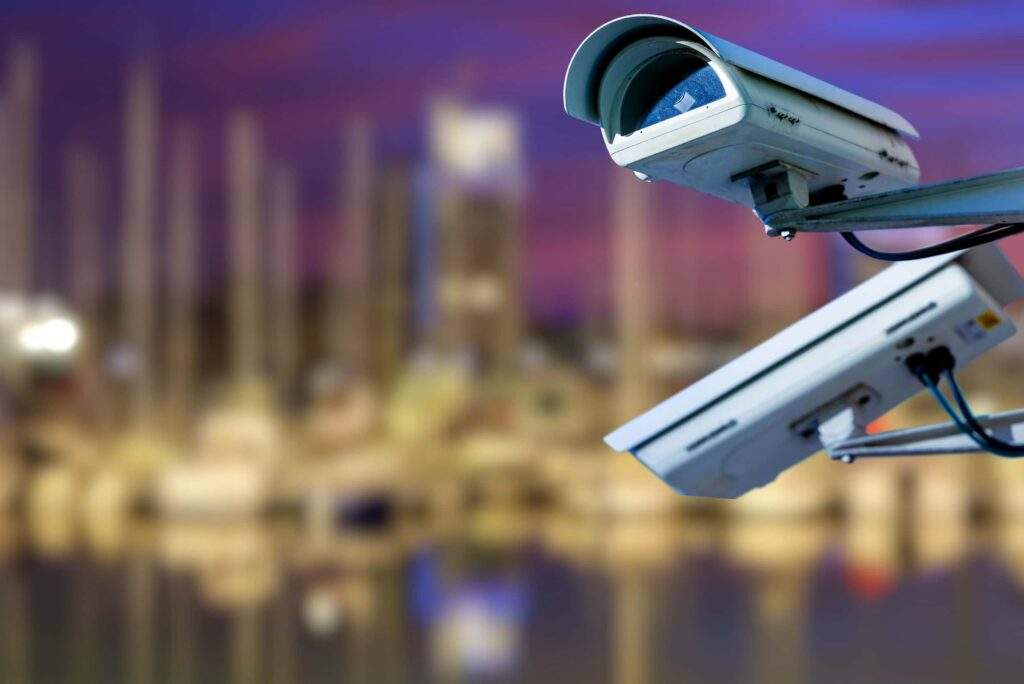What are the Penalties and Arrest Requirements under the 'Japanese Pharmaceutical and Medical Device Act'? Explaining Points to Avoid

Manufacturing companies and pharmacies dealing with pharmaceuticals and similar products routinely conduct checks in accordance with the Japanese Pharmaceutical Affairs Law. However, the regulations of this law are not limited to these businesses. The scope of these regulations is extensive, and there are cases where entities unknowingly violate the Pharmaceutical Affairs Law because they are unaware they fall within its regulatory scope.
In this article, we will thoroughly explain the penalties for violating the Pharmaceutical Affairs Law and the key points to avoid such violations, to prevent inadvertent non-compliance with the law.
What is the Pharmaceuticals and Medical Devices Act?

The Pharmaceuticals and Medical Devices Act, officially known as the “Act on Securing Quality, Efficacy and Safety of Products Including Pharmaceuticals and Medical Devices,” is a law that establishes necessary regulations for pharmaceuticals and medical devices.
Previously enforced as the “Pharmaceutical Affairs Law,” it was revised in 2013 (Heisei 25) and renamed the “Pharmaceuticals and Medical Devices Act” when it came into effect in 2014 (Heisei 26). It is also sometimes referred to as the “Act on Pharmaceuticals and Medical Devices.”
Purpose of the Pharmaceuticals and Medical Devices Act
The purpose of the Pharmaceuticals and Medical Devices Act is defined in Article 1 as follows:
Article 1 (Purpose)
This Act aims to improve public health by establishing necessary regulations to ensure the quality, efficacy, and safety of pharmaceuticals, quasi-drugs, cosmetics, medical devices, and regenerative medicine products (hereinafter referred to as “pharmaceuticals, etc.”), to prevent and control the occurrence and spread of health hazards caused by their use, to take measures related to the regulation of designated drugs, and to promote the research and development of pharmaceuticals, medical devices, and regenerative medicine products that are particularly necessary for medical care.
Act on Securing Quality, Efficacy and Safety of Products Including Pharmaceuticals and Medical Devices, Article 1
In simple terms, one of the purposes of the Pharmaceuticals and Medical Devices Act is to establish necessary regulations to ensure the quality, efficacy, and safety of pharmaceuticals, etc. To achieve this purpose, the Act sets various regulations at each stage of manufacturing, management, sales, and advertising of pharmaceuticals, etc.
Regulations to be aware of: Sales and Advertising
Among the regulations set by the Pharmaceuticals and Medical Devices Act, particular attention should be paid to sales and advertising regulations.
The majority of criminal cases involving violations of the Pharmaceuticals and Medical Devices Act are related to violations of sales and advertising regulations.
According to the crime statistics of the National Police Agency, the number of cases apprehended for violations of the Pharmaceuticals and Medical Devices Act in 2020 (Reiwa 2) increased by 15 from the previous year to 63. Of these, 14 were violations related to the novel coronavirus infection. (National Police Agency, Community Safety Bureau, “Situation of Apprehension of Economic Crimes in Reiwa 2[ja]“)
In 2021 (Reiwa 3), the number of cases apprehended for violations of the Pharmaceuticals and Medical Devices Act was 46, of which 7 were violations related to the novel coronavirus infection. (National Police Agency, Community Safety Bureau, “Situation of Apprehension of Economic Crimes in Reiwa 3[ja]“)
According to the statistics of the Tokyo Metropolitan Police Department[ja], the content of violations of the Pharmaceuticals and Medical Devices Act is as follows:
In 2018, there were 34 cases of violations of the Pharmaceuticals and Medical Devices Act in Tokyo, of which 15 were related to sales and 10 were related to advertising. (Tokyo Metropolitan Police Department, “Statistics of the Tokyo Metropolitan Police Department (2018)[ja]“)
In 2019 (Heisei 31/Reiwa 1), there were 12 cases of violations of the Pharmaceuticals and Medical Devices Act in Tokyo, of which 5 were related to sales and 1 was related to advertising. (Tokyo Metropolitan Police Department, “Statistics of the Tokyo Metropolitan Police Department (Heisei 31/Reiwa 1)[ja]“)
In 2020 (Reiwa 2), there were 24 cases of violations of the Pharmaceuticals and Medical Devices Act in Tokyo, of which 12 were related to sales and 10 were related to advertising. (Tokyo Metropolitan Police Department, “Statistics of the Tokyo Metropolitan Police Department (Reiwa 2)[ja]“)
From these statistics, it can be seen that the majority of violations of the Pharmaceuticals and Medical Devices Act are related to sales and advertising regulations. Therefore, in order to avoid violations of the Pharmaceuticals and Medical Devices Act, it is particularly important to correctly understand the regulations related to sales and advertising.
Acts Violating the Japanese Pharmaceutical and Medical Device Act

Before discussing penalties and arrest requirements, we will explain the regulations stipulated by the Japanese Pharmaceutical and Medical Device Act.
Regulated Entities
The main entities regulated by the Japanese Pharmaceutical and Medical Device Act (PMD Act) are, as stated in Article 1, five categories: pharmaceuticals, quasi-drugs, cosmetics, medical devices, and regenerative medicine products (collectively referred to as “pharmaceuticals, etc.”).
“Pharmaceuticals” are, simply put, substances used for the diagnosis, treatment, and prevention of diseases and injuries, or those intended to affect the human body or its functions (Article 2, Paragraph 1). Examples include antigen-specific test kits and contraceptive pills.
“Quasi-drugs” are, in simple terms, substances that have an effect on the human body, but the effect is milder compared to pharmaceuticals (Article 2, Paragraph 2). Examples include breath freshening sprays, insecticides, and contact lens cleaning solutions.
“Cosmetics” are, simply put, substances that have a milder effect on the human body compared to quasi-drugs, and are used to clean the body, maintain healthy skin and hair, or are applied to the body for such purposes (Article 2, Paragraph 3). Examples include general cosmetics, shampoos, toothpastes, skincare products, and body lotions.
“Medical devices” are, in simple terms, machinery and equipment intended to affect the structure or function of the body, or for the purpose of diagnosis, treatment, or prevention (Article 2, Paragraph 4). Examples include thermometers, sutures, contraceptives, and disease diagnosis programs.
“Regenerative medicine products” are substances that have been processed, such as by culturing cells, or that contain genes that are expressed in the body for therapeutic purposes (Article 2, Paragraph 9). An example is cartilage tissue for transplantation in traumatic cartilage defects.
The PMD Act primarily regulates these five categories and imposes restrictions on sales and advertising.
Pharmaceutical and Medical Device Act Sales Regulations
The Japanese Pharmaceutical and Medical Device Act (薬機法) imposes regulations on the sale of pharmaceuticals and related products.
For pharmaceuticals, highly controlled medical devices, and regenerative medicine products, it is not permitted to engage in sales without the approval of the Minister of Health, Labour and Welfare (Article 24). In addition, for controlled medical devices, notification is required for sales (Article 29-3).
These regulations apply when sales are conducted “as a business”. “As a business” refers to when repetitive and continuous actions can be evaluated as the execution of a business. This can potentially apply to wholesale and retail businesses, and even individual reselling, so caution is necessary.
Furthermore, it is also prohibited to sell pharmaceuticals and related products (unapproved and unlicensed pharmaceuticals) without the necessary approvals or permissions (Article 55-2, Article 60, Article 62, Article 64, Article 65-4). It is particularly important to note that even if a product is being sold as food, it may be deemed a “pharmaceutical”, and in such cases, its sale as an unapproved and unlicensed pharmaceutical would be illegal.
The applicability of a product as a “pharmaceutical” is determined by the following criteria according to precedent:
“A product is considered a ‘pharmaceutical’ if, based on a comprehensive assessment of its ingredients, shape, name, stated purpose, efficacy, dosage, sales method, and any accompanying descriptions or advertisements, it is generally understood to be ‘intended for use in the diagnosis, treatment, or prevention of human or animal diseases’, regardless of whether it objectively has a pharmacological effect.” (Supreme Court ruling, September 28, 1982 (Showa 57), Criminal Collection Vol. 36 No. 8 p. 787)
Even if a product is being sold as food, it is determined whether it qualifies as a “pharmaceutical” based on a comprehensive assessment of not only its shape and efficacy, but also its sales method and advertising.
Furthermore, according to the Ministry of Health, Labour and Welfare’s “Partial Revision of the Criteria for the Scope of Pharmaceuticals (March 31, 2020 (Reiwa 2), Yakusei Release No. 0331 No. 33)[ja]“, if a product is advertised with pharmaceutical-like efficacy, it is considered a “pharmaceutical”.
Therefore, depending on the sales method and content of advertising, selling a product may be illegal if it is deemed a “pharmaceutical”.
Advertising Regulations under the Japanese Pharmaceuticals and Medical Devices Act

The Japanese Pharmaceuticals and Medical Devices Act (薬機法) sets out advertising regulations in Articles 66 to 68. In this article, we will explain the particularly important regulations in Articles 66 and 68.
Article 66 (Exaggerated Advertising, etc.)
No person shall advertise, describe, or disseminate false or exaggerated information about the name, manufacturing method, efficacy, effect, or performance of pharmaceuticals, quasi-drugs, cosmetics, medical devices, or regenerative medicine products, whether explicitly or implicitly.
2. Advertising, describing, or disseminating information that could be misunderstood as a guarantee of the efficacy, effect, or performance of pharmaceuticals, quasi-drugs, cosmetics, medical devices, or regenerative medicine products by a doctor or other person is considered to fall under the preceding paragraph.
3. No person shall imply abortion or use obscene documents or drawings in relation to pharmaceuticals, quasi-drugs, cosmetics, medical devices, or regenerative medicine products.
Article 66 of the Act on Securing Quality, Efficacy and Safety of Products Including Pharmaceuticals and Medical Devices
Article 68 (Prohibition of Advertising of Pharmaceuticals, Medical Devices, and Regenerative Medicine Products before Approval)
No person shall advertise the name, manufacturing method, efficacy, effect, or performance of pharmaceuticals, medical devices, or regenerative medicine products that are subject to the provisions of Article 14, paragraph 1, Article 23-2-5, paragraph 1, or Article 23-2-23, paragraph 1, and have not yet received approval or certification under Article 14, paragraph 1, Article 19-2, paragraph 1, Article 23-2-5, paragraph 1, Article 23-2-17, paragraph 1, Article 23-2-25, paragraph 1, or Article 23-2-37, paragraph 1.
Article 68 of the Act on Securing Quality, Efficacy and Safety of Products Including Pharmaceuticals and Medical Devices
Summarizing the provisions of Articles 66 and 68, the following types of advertising are prohibited:
- False or exaggerated advertising
- Advertising that could be misunderstood as a guarantee of efficacy or effect by a doctor or other person
- Advertising that implies abortion or uses obscene documents or drawings
- Advertising of pharmaceuticals, medical devices, etc. before approval
The definition of “advertising” under the Japanese Pharmaceuticals and Medical Devices Act was published in a notification by the Director of the Surveillance and Guidance Division of the Pharmaceutical Safety Bureau of the Ministry of Health and Welfare dated September 29, 1998 (Heisei 10) (On the Applicability of Advertising of Pharmaceuticals, etc. under the Pharmaceutical Affairs Act[ja]). According to this, it is considered “advertising” if it meets the following three requirements:
- There is a clear intention to attract customers (to stimulate the desire to purchase) (Inducement)
- The product name of a specific pharmaceutical, etc. is clearly stated (Specificity)
- It is in a state that can be recognized by the general public (Recognizability)
The advertising regulations in Articles 66 and 68 apply to “any person”, and there are no limitations on the regulated parties. Not only medical professionals and advertising clients, but also advertising agencies, affiliates, influencers, etc. are subject to regulation, regardless of whether they are corporations or individuals.
There are also no limitations on the advertising media, so not only paper media such as flyers and magazines and websites, but also personal SNS are subject to regulation.
Criteria for Determining Violative Advertisements
The determination of whether an advertisement violates the Japanese Pharmaceutical and Medical Device Act (薬機法) is based on the notifications from the Ministry of Health, Labour and Welfare, “On the Standards for Proper Advertising of Pharmaceuticals, etc.[ja]” and “On the Explanation and Points to Note about the Standards for Proper Advertising of Pharmaceuticals, etc.[ja]“.
The Standards for Proper Advertising of Pharmaceuticals, etc. outline the following 14 criteria:
- Name-related
- Manufacturing method-related
- Efficacy, performance, and safety-related
- Restrictions on advertisements that may encourage excessive consumption or misuse
- Restrictions on advertisements for medical drugs, etc.
- Restrictions on expressions about efficacy and effects in general advertisements
- Matters to be noted or stated in advertisements for habit-forming drugs
- Matters to be noted or stated in advertisements for drugs, etc. about usage and handling precautions
- Restrictions on defamatory advertisements for other companies’ products
- Endorsements by medical professionals, etc.
- Restrictions on advertisements for sweepstakes, prizes, etc.
- Restrictions on advertisements that may cause discomfort, annoyance, anxiety, or fear
- Handling of advertisements in TV and radio sponsored programs, etc.
- Restrictions on expressions about cosmetic or food-like usage of drugs or beauty or health equipment-like usage of medical devices
Whether an advertisement expression violates the Pharmaceutical and Medical Device Act is determined in light of the above criteria. For example, regarding the efficacy and effects in item 3, it is stipulated that “expressions about the efficacy, effects, or performance of drugs, etc. that require approval should not exceed the range of approved efficacy, effects, etc.”, and advertisements using expressions that exceed the permitted range will violate the Pharmaceutical and Medical Device Act.
Examples of Advertisements that Violate the Japanese Pharmaceutical Affairs Law
So, what specific types of advertising expressions would violate the Japanese Pharmaceutical Affairs Law? Let’s take a look at some examples of advertisements for cosmetics and food products that could potentially be in violation of this law.
Case Study 1: Cosmetics
In addition to the “Japanese Standards for Fair Advertising of Pharmaceuticals and Quasi-Drugs,” the criteria for determining whether an advertisement for cosmetics violates the “Japanese Pharmaceutical and Medical Device Act” are also indicated in the “Amendment on the Scope of Efficacy of Cosmetics[ja]“.
Here, the scope of 56 expressions of efficacy and effects for cosmetics is defined, and any expressions that deviate from this scope are considered violations of the Japanese Pharmaceutical and Medical Device Act.
Specifically, the following expressions exceed the permitted scope of efficacy and effects for cosmetics and violate the Japanese Pharmaceutical and Medical Device Act:
- “If you want to relieve skin fatigue”
- “Reaches deep into the skin”
- “Prevents wrinkles”
- “Treats ○○”
- “Regenerates ○○”
- “Power derived from cells”
- “The best detox”
- “Regenerates hair and improves from the core”
- “Rejuvenate with aging care”
- “Improve skin quality with aging care”
- “I haven’t had any fine lines since using this!”
- “The best cosmetics”
- “Works fast”
- “Absolute guarantee”
Case Study 2: Food
The Japanese Pharmaceutical and Medical Device Act does not contain provisions related to food. Therefore, some people may think that no matter what kind of advertising is done for food, it will not violate the Pharmaceutical and Medical Device Act.
However, even if it is food, if its labeling or advertising content claims to have the efficacy and effects of a pharmaceutical product, it will be considered as such.
Once it is considered a pharmaceutical product, without approval as a pharmaceutical product, advertising will be deemed a violation of the Pharmaceutical and Medical Device Act under Article 68.
In other words, even if a product is not originally subject to the regulations of the Pharmaceutical and Medical Device Act, advertising that claims to have the efficacy and effects of a pharmaceutical product will be a violation of the Act.
However, under the “Japanese Health Food System”, it is permitted to display functions approved by the government for some foods. “Health Foods” include ① Foods with Function Claims, ② Nutrient Function Foods, and ③ Foods for Specified Health Uses.
For example, a Nutrient Function Food with the nutrient name potassium can display the effect, “Potassium is a nutrient necessary for maintaining normal blood pressure.”
Reference: Consumer Affairs Agency “What is the Food Labeling System for Health and Nutrition?“
Furthermore, the Japanese Health Promotion Act applies to food. Article 65, Paragraph 1 of the Act prohibits false and exaggerated labeling for food.
When advertising food, it is necessary to ensure that it does not violate the Pharmaceutical and Medical Device Act or the Health Promotion Act.
Penalties and Arrest Requirements for Violations of the Japanese Pharmaceutical Affairs Law

Penalties
If you conduct a sales business of pharmaceuticals, etc. without the necessary permission (violation of Article 24) or sell unapproved pharmaceuticals, etc. (violation of Article 55, Paragraph 2), you will be subject to either or both of imprisonment for up to 3 years and a fine of up to 3 million yen as a criminal penalty (Article 84, Item 9, Article 84, Item 18).
What about violations of advertising regulations? If you violate the advertising regulations under the Japanese Pharmaceutical Affairs Law, you will be subject to either or both of imprisonment for up to 2 years and a fine of up to 2 million yen (Article 85, Paragraph 4, Item 5).
Furthermore, a surcharge system was introduced by the amendment to the Japanese Pharmaceutical Affairs Law in the first year of Reiwa (2019).
Therefore, if you engage in false or exaggerated advertising (violation of Article 66, Paragraph 1), you may be subject to a high surcharge (an amount calculated by multiplying 4.5% of the sales during the violation period).
In addition, if you violate sales regulations or advertising regulations, you may also be subject to administrative penalties such as suspension orders or revocation of business licenses.
Arrest Requirements
So, can you be arrested if you violate the regulations of the Japanese Pharmaceutical Affairs Law?
The requirements for arrest are 1) a reason for arrest and 2) the necessity of arrest. The reason for arrest, simply put, is the presence of an act that is subject to criminal punishment.
The necessity of arrest refers to the risk of escape, but it is often judged that there is a necessity for arrest.
As we have seen earlier, violations of the sales regulations and advertising regulations under the Japanese Pharmaceutical Affairs Law are subject to criminal punishment. Therefore, if you violate these regulations, you may be arrested on the grounds that there is a reason for arrest.
Especially for advertising regulations, it is a “whoever” regulation, which applies to everyone. Therefore, if you post an advertisement that violates the Japanese Pharmaceutical Affairs Law, anyone involved in the advertisement can be arrested, as the crime is established.
Key Points to Avoid Violating the Japanese Pharmaceutical and Medical Device Act

The key points to avoid violating the Japanese Pharmaceutical and Medical Device Act are mainly the following two:
- Not only the provisions of the Japanese Pharmaceutical and Medical Device Act, but also thoroughly check ministerial ordinances such as guidelines and notifications, court precedents, and administrative guidance examples, and accurately grasp the rules of the Japanese Pharmaceutical and Medical Device Act.
- Share this information within the company and thoroughly establish a risk management system.
However, ministerial ordinances and court precedents related to the Japanese Pharmaceutical and Medical Device Act cover a wide range, and it is extremely difficult to grasp all of them.
Especially if you are dealing with the Japanese Pharmaceutical and Medical Device Act for the first time, there is a high possibility that you may misunderstand the rules. By asking a lawyer to perform a legal check on advertising expressions and contract contents, you can save time and effort.
Conclusion: If you’re worried about violating the Japanese Pharmaceutical and Medical Device Act, consult a lawyer
The Japanese Pharmaceutical and Medical Device Act has a wide range of regulations, and it’s possible to violate them without realizing it. It can be difficult to determine on your own whether or not you’re in violation of the Act. Therefore, if you have any concerns, we recommend consulting with a lawyer who specializes in this area.
Introduction to Our Firm’s Measures
Monolith Law Office is a legal office with high expertise in both IT, particularly the Internet, and law. We provide services such as legal checks of articles and landing pages, creation of guidelines, and sampling checks for various entities including media operators, review site operators, advertising agencies, direct-to-consumer (D2C) businesses such as supplement manufacturers, cosmetic manufacturers, clinics, and Application Service Provider (ASP) businesses. Details are provided in the article below.
Category: General Corporate





















